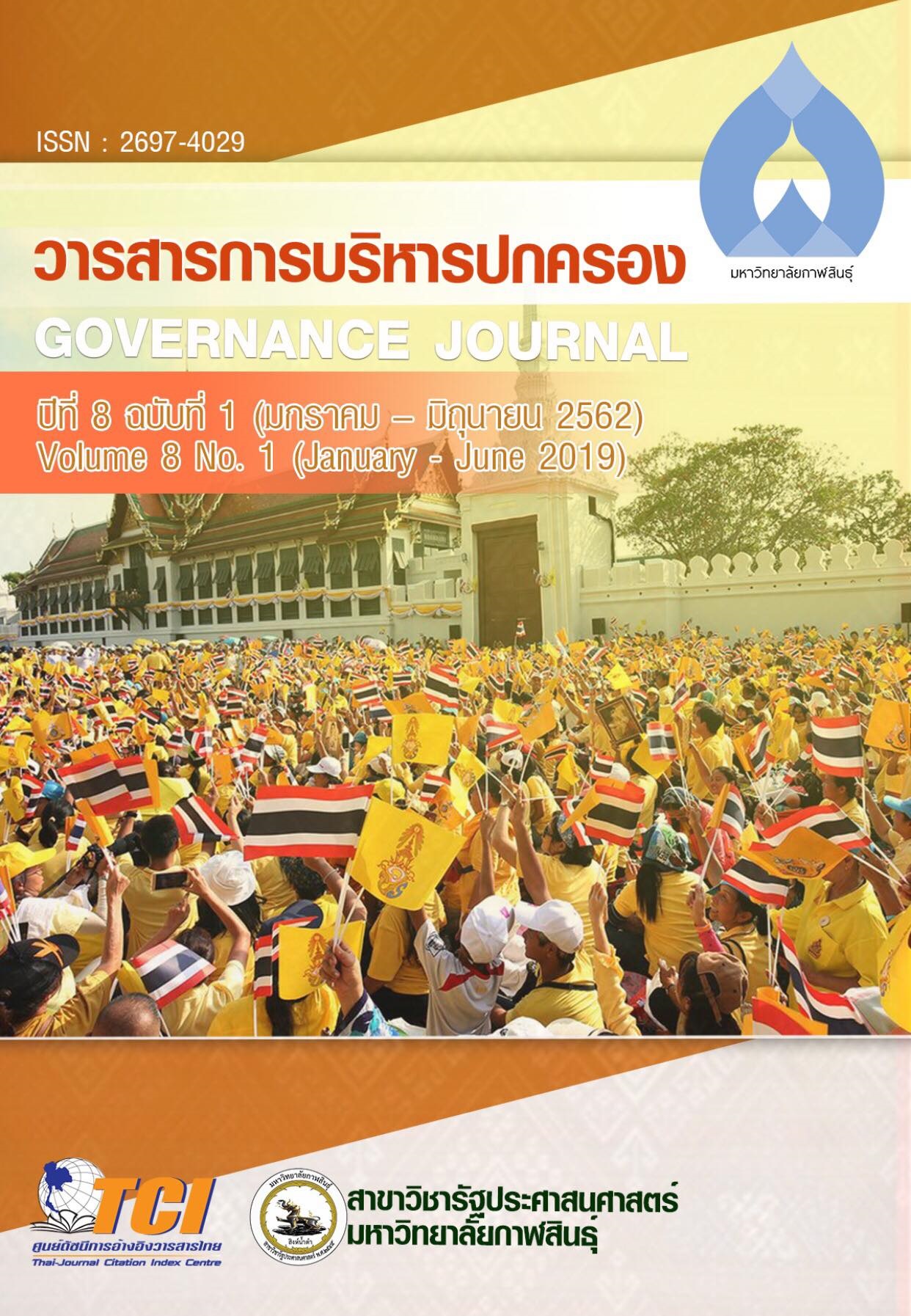Ethics in Public Administration for the 21st Century : Pentagram Ethical Model
Keywords:
Ethics, Ethical Model, Pentagram Ethical ModelAbstract
Abstract
This article aims to study about ethics in public administration for the 21st century. Methodology used in the study is a documentary research. In the article, the author proposed a model called "pentagram ethical model." The model consists of five components of ethics: (1) duties or public interest, (2) rules or laws, (3) results or greatest good, (4) virtues or character, and (5) intuition or common sense. The first component of ethics comes from the nature of public service and the others four components of ethics come from philosophical perspectives.
Downloads
References
นพพล อัคฮาด. (2560). บทความปริทรรศน์หนังสือ “Public Administration: A
Very Short Introduction” (2016) by Stella Z. Theodoulou & Ravi K. Roy. วารสารการบริหารปกครอง, 6 (1) : 483 - 494
Bowman, J.S. and West, J.P. (2015). Public Service Ethics: Individual and
Institutional Responsibilities. London: SAGE Publications Ltd.
Cooper, T.L. (2001). “The Emergence of Administrative Ethics as a Field of
Study in the United State” in T.L. Cooper, ed. Handbook of Administrative Ethics. New York: Marcel Dekker, Inc.
Fox, C.J. (2001). “The Use of Philosophy in Administrative Ethics” in T.L.
Cooper, ed. Handbook of Administrative Ethics. New York:
Marcel Dekker, Inc.
Garofalo, G. and Geuras, D. (2006). Common Ground, Common Future:
Moral Agency in Public Administration, Professions, and Citizenship. London: Taylor & Francis Group.
Hart, D.K.. (2001). “Administration and the Ethics of Virtue: In All Things,
Choose First for Good Character and Then for Technical Expertise” in T.L. Cooper, ed. Handbook of Administrative Ethics. New York: Marcel Dekker, Inc.
Lawton, A.; Rayner, J.; and Lasthuizen, K. (2013) Ethics and Management
in the Public Sector. London: Routledge.
Lewis, C.W. and Gilman, S.C. (2005). The Ethics Challenge in Public
Service: A Problem-Solving Guide, 2nd Ed. San Francisco: Jossey-Bass.
________. (2012). The Ethics Challenge in Public Service: A Problem-
Solving Guide, 3rd Ed. San Francisco: Jossey-Bass.
Lynch, C.E. and Lynch, T.D. (2009). “Democratic Morality: Back to the
Future” in R.W. Cox III. Ethics and Integrity in Public Administration: Concepts and Cases. New York: M.E. Sharpe, Inc.
Martinez, J.M. (2009). Public Administration Ethics for the 21st Century.
California: Praeger-ABC- CLIO, LLC.
Menzel, D.C. (2007). Ethics Management for Public Administrators:
Building Organizations of Integrity. New York: M.E. Sharpe, Inc.
Pops, G.M. (2001). “A Teleological Approach to Administrative Ethics” in
T.L. Cooper, ed. Handbook of Administrative Ethics. New York: Marcel Dekker, Inc.
Svara, J. (2007). “The Ethical Triangle” in L. Richter and F. Burke, eds.
Combating Corruption, Encouraging Ethics: A Practical Guide to Management Ethics. New York: Rowman & Littlefield Publishers, Inc.
________. (2015). The Ethics Primer for Public Administrators in
Government andNonprofit Organizations. Burlington: Jones &
Translated Thai Reference
Akahat, A. (2017). Book Review “Public Administration: A Very Short
Introduction” (2016) by Stella Z. Theodoulou & Ravi K. Roy. Governance Journal, 6 (1) : 483 - 494






